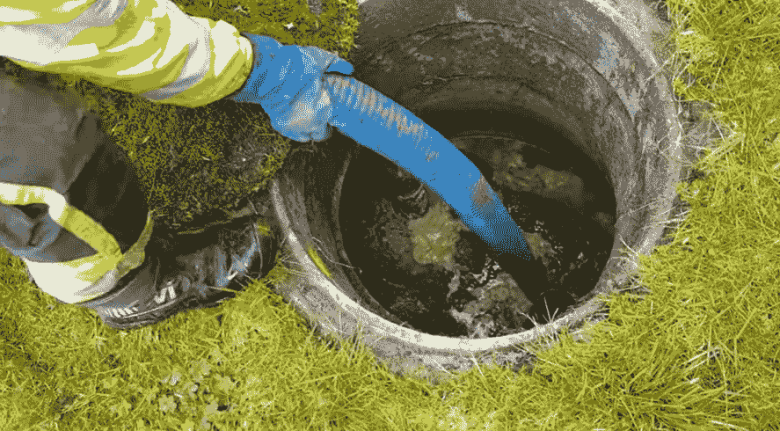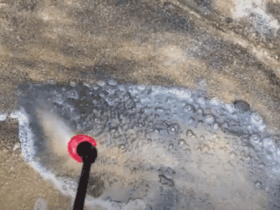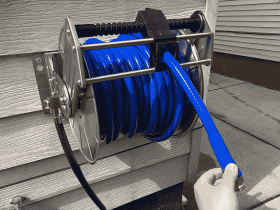The septic tank is an essential part of your home. Without it, waste would not be able to flow away from your home. However, this means that the tank needs to be kept clean at all times. This can be difficult, especially if you have never cleaned a septic system before. Luckily for you, though, we are here to help! In this blog post, we will cover everything from what cleaning chemicals can be used down into your drain field and how often these should be used as well.
Maintaining a septic tank is necessary to ensure that it is not blocked by debris. This can cause contamination of the water supply and even lead to flooding. Cleaning a septic tank is not an easy task, but there are steps you can take to make it simpler. You can speak to septic specialists to have a better understanding of your home’s needs. They can provide you with all the services and information you need to maintain your septic tank and avoid any future issues.
Not all cleaning products are safe for a septic tank.
When cleaning the inside of your septic tank, it’s important to choose the right product so that you don’t damage your plumbing. There are some products that can do more harm than good when poured into a septic tank.
When choosing a cleaner, look for one that contains natural ingredients or is biodegradable. If you have any doubts about whether or not something is safe for use in your tank, call a professional who can advise you on what kinds of chemicals are and aren’t appropriate for use with septic systems.
Liquid drain cleaners are particularly fine.
Liquid drain cleaners are particularly fine. They come in a wide variety of different types and brands, so if you’ve already got one that you like, use that. If not, any brand will work just as well.
Liquid drain cleaners are made to dissolve in water very quickly, making them safe for septic tanks because they don’t linger around long enough to cause damage or clog anything up (unlike powder drain cleaners). They also tend to be more effective than baking soda and vinegar at removing grease and gunk from your pipes—just make sure the product has some sort of biodegradable ingredient added, so it doesn’t cause harm once it ends up in your tank!
Read more: How to hire the best carpet cleaning company?
Water-based cleaners are the most effective.
Water-based cleaners are the most effective for septic tank cleaning. They are formulated with ingredients that break down easily and do not leave a residue, which can clog pipes or damage equipment. Water-based cleaners also have a milder smell than other types of cleaners, so they’re safer to use in septic tanks (as long as they don’t contain any harsh chemicals).
Don’t use bleach at all
Bleach is not safe for your septic tank. When you use bleach to clean your toilet or sinks, it can kill the bacteria that live in your septic tank and cause all kinds of problems. Bleach is also harmful to the pipes that run through a septic system, so don’t use it at all, even if you’re tempted by its strong smell.
Vinegar is a much better option than bleach when cleaning out your toilet bowl or sinks because it neutralizes odors without damaging any parts of your plumbing system, like drainpipes and septic tanks. Vinegar will still get rid of tough stains on porcelain surfaces and keep them looking shiny and clean!
Avoid antibacterial products
Avoid antibacterial products. Although they seem like a good idea, antibacterial soaps and cleaners are not necessary for cleaning septic tanks. In fact, they can disrupt the natural balance of your septic tank and cause your tank to clog. There are many people that make the mistake of using antibacterial products for the cleaning process; therefore, it’s recommended to visit some of the best cleaning service providers’ websites and speak to a specialist before you begin cleaning.
The best way to clean a septic tank is with basic household ingredients such as vinegar, baking soda, salt water, and dish soap (without any additives). These simple solutions will get rid of all bacteria without causing any harm to the remaining bacteria in your septic tank.
Use vinegar sparingly
Vinegar is a good cleaner, but it’s not always the best choice. Vinegar is good for cleaning toilets, sinks, and drains. It can also be used to clean floors but should be used sparingly because it can make your floor slippery if you use too much of it. It will also leave an unpleasant odor behind if you don’t rinse after using vinegar to clean your floors.
Vinegar is not recommended for cleaning glass or windows because it will leave streaks on them when rinsed off with water. The same goes for clothes or other fabrics made from natural fibers like cotton—vinegar will cause discoloration and fading over time because of its acidity level (which makes it great for killing bacteria).
It’s important not to put anything down the drain that can harm the bacteria in your septic tank:
When you’re cleaning your bathroom, it’s important to remember that some chemicals can be harmful to the bacteria that live in your septic tank. Using cleaners or detergents with toxic ingredients could kill off the good bacteria and make your system more likely to get clogged.
Your septic tank has colonies of good bacteria called aerobic microorganisms, which break down liquids and solids so natural organisms can digest them before being released into the environment. Without them, there would be no way for sewage treatment plants to do their work! These helpful microbes are also what keep dangerous pathogens from getting into our drinking water supply or groundwater table, where people might accidentally come into contact with them (think about how many people take showers). Without these helpful guys around, we’d have many more problems than dirty bathrooms! So keep them alive: don’t use harsh chemicals when cleaning up your home!
Final Thoughts
So as you can see, there are some cleaning products that you should avoid using in your septic tank. The best thing to do is to stick with products that are water-based and don’t have any harsh chemicals in them. Vinegar is another good option because it has antimicrobial properties and helps keep things fresh and smelling! Don’t forget about the importance of keeping your drains clean, though – this will help keep things running smoothly for years to come.











Leave a Review